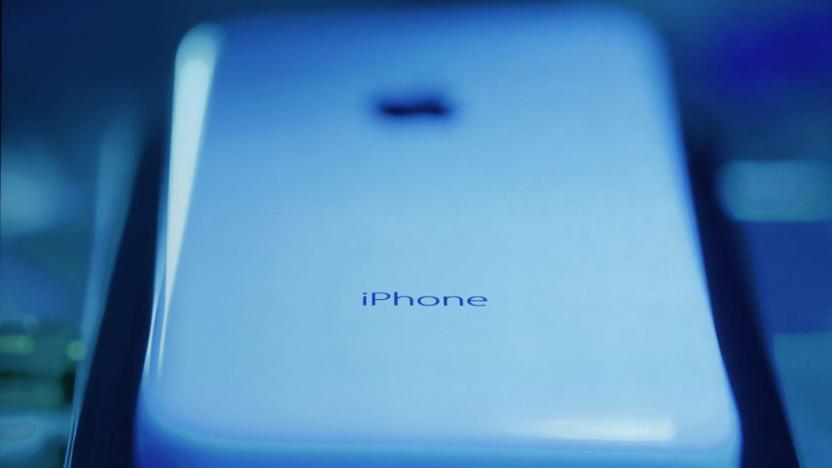FreedomOfInformationAct
Latest

ACLU sues the TSA for domestic electronics screening details
When the TSA launched stricter screening procedures for domestic passengers' electronic devices last year, it didn't reveal the whys and hows. That didn't sit well with the American Civil Liberties Union Foundation, which has now filed a Freedom of Information Act (FOIA) lawsuit against the organization in an effort to extract more info about its procedures and motivations.

State Department releases emails from Clinton aide Huma Abedin
Like it or not, the Hillary Clinton email saga isn't over yet. The US State Department has released about 2,800 emails and other documents from former Clinton aide Huma Abedin that were found on the laptop of her soon-to-be-former husband Anthony Weiner. The disclosure is a response to a 2015 Freedom of Information Act request from Judicial Watch, a conservative watchdog group that has been hoping to use the presence of classified emails from personal accounts as evidence of lawbreaking by Abedin and Clinton. Most of the messages (covering January 2009 to February 2013) are unclassified, though a handful have been redacted at least in part.

FBI won't be forced to reveal San Bernardino iPhone hacking tool
The Associated Press, USA Today and Vice News have failed in their attempt to reveal the hacking tool the FBI used to access San Bernardino terrorist Syed Farook's iPhone. Judge Tanya Chutkan denied their request in a summary judgment ruling issued late on September 30th, arguing that the risks involved in naming the vendor (and thus the tool) or the price paid are too serious to honor a Freedom of Information Act request. It would make the company a target for retaliatory hacks and exploits that it likely couldn't withstand, Judge Chutkan said, while the price would tell "adversaries" how readily the FBI can use the tool in the future.

FBI's FOIA website will make it easier to submit requests in March
The FBI's decision to stop accepting email-based Freedom of Information Act (FOIA) requests wouldn't have sounded so bad if the agency didn't present horrible alternatives. Compared to email, snail mailing and faxing requests would take much longer, after all. Plus, the beta version of the eFOIPA submission web portal requires too much personal info and has too many restrictions. Fortunately, the feds seem to have heard the people's complaints and will roll back the portal's worst limitations when it officially opens on March 1st.

By March, the FBI won't let you email in FOIA requests
Formal requests citing the Freedom of Information Act (FOIA) have been a powerful tool in the public's efforts to legally get info from the government. And not just for yourself: Once a FOIA request runs its lengthy course, an official body often releases that intel publicly -- for example, when the CIA published 12 million declassified documents last month on everything from Nazis to UFOs. While they take time to fulfill, most agencies allow citizens to easily submit FOIA inquiries using email, with some notable exceptions relying on older communication methods. But on March 1st, the FBI is intentionally rolling back the technological clock, and will only allow requests via fax or snail mail, plus a limited amount through their online portal.

FBI dumps 5,000 redacted pages on its cellphone-tracking device
It's no secret that local law enforcement offices around the US are using a tool called Stingray to track cellphone locations without the approval of a judge. In response to a Freedom of Information Act request from MuckRock's Alex Richardson, the FBI released thousands of pages of heavily-redacted documents, emails and more concerning the project, including one titled "Cellphone Tracking for Dummies." The super secret Stingray device is provided to local authorities by the FBI, creating fake cell towers that force nearby handsets to connect to it -- even those belonging to folks other than a suspect. And as you might expect, in addition to tracking, it also reveals the identity of the phone's owner. Included in the collection is loads of correspondence between the Bureau, Boeing, the Harris Corporation and local law enforcement. Those two middle companies, by the way, are manufacturers of the tech.

Here's what the FCC thought about John Oliver's net neutrality rant
Remember when John Oliver gave the net neutrality issue a hammering on his HBO Show? If you hadn't heard (and we've embedded the segment after the break), Oliver's call to (digital) arms led to internet users collapsing part of the FCC's site with a torrent of comments. But what happened on the other side? The Verge made a Freedom of Information Act request to those that control the pipes of the internet, and part of the response included email exchanges between employees regarding the whole implosion.

FTC denies request for documents on Adobe complaint, confirms investigation of Apple's SDK rules?
Sure, Apple and Adobe aren't the best of friends, but their disagreement goes a little further than mild distaste. Apple moved to ban iOS apps not written through its own developer framework (SDK), which more or less killed off Adobe's iPhone Flash developer tools. Adobe in turn issued a complaint to the FTC, a complaint that Wired requested a copy of under the Freedom of Information Act. The release of that complaint was denied on the grounds that "disclosure of that material could reasonably be expected to interfere with the conduct of the Commission's law enforcement activities." That is another strong indication that the FTC is currently investigating Apple and deciding whether the company is acting properly by preventing third-party access to its iOS devices. What's next? We likely won't hear anything until the FTC makes up its mind, and even then only if it decides Apple isn't playing as nice as it should be.





